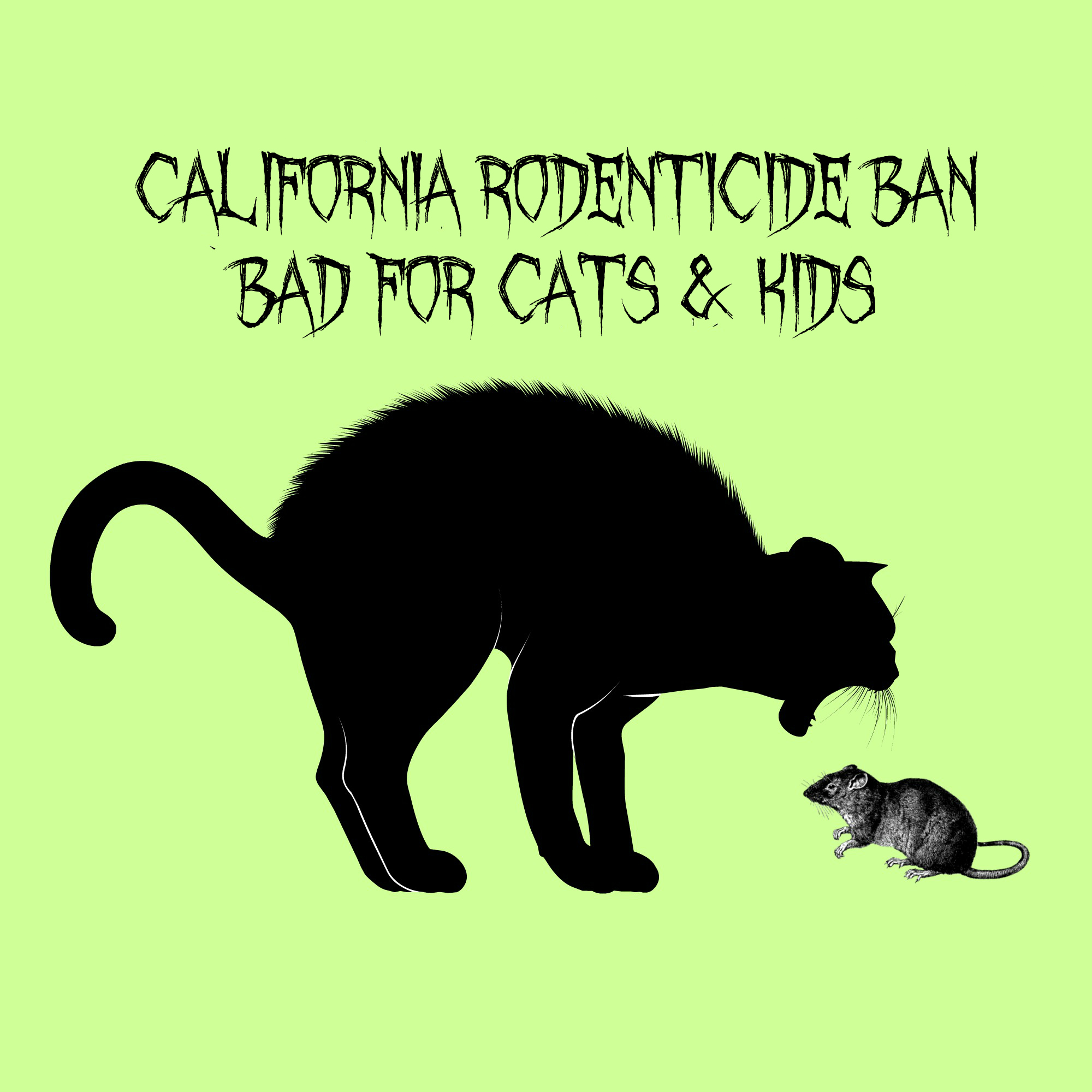 What’s old is new again, at least when it comes to rodent control in California. A California ban on rodenticides containing Brodifacoum, which will take place on July 1, will prevent the sale of second generation anticoagulants by d-CON® to the general public.
What’s old is new again, at least when it comes to rodent control in California. A California ban on rodenticides containing Brodifacoum, which will take place on July 1, will prevent the sale of second generation anticoagulants by d-CON® to the general public.
Environmentalists claim these compounds are responsible for numerous wildlife deaths via secondary poisoning. If a mouse or rat that has consumed the is eaten by a predator like such as a bird of prey, coyote or bobcat supporters of the ban say the predator could be also affected.
Charlotte Fadipe, Assistant Director of Communications for the California Department of Pesticide Regulation (DPR)says “After July 1, there will be plenty of options and products for consumers who may have rodent problems. These include first generation anticoagulants that were not subject to the regulatory action. DPR also would like to point out integrated pest management practices that are less toxic alternatives to controlling rodents such as exclusion and mechanical and sticky traps.”
Greg Loarie, attorney for the environmental group, EarthJustice says agreed with the snap and sticky traps and added people could also use cats. That ought to sit well with the bird lobby. Just saying.
Interesting that no one mentioned the fact that individuals will still be able to purchase neurotoxin rodenticides over the counter to dispatch vermin. Unlike the anticoagulants, which can be treated with Vitamin K, these chemicals have no antidote. If directly ingested by a kid or pets, it’s bad news.
Homeowners will still be able to purchase more expensive Brodifacoum feeding stations where rodents dine in, but they can’t check out. And it can be used by professional pest control providers.
According to d-CON’s website, discontinuing the anticoagulants “result in the removal of the most cost effective rodenticides from the consumer market and severely limit the rodent control options available to consumers. If EPA’s Notice is implemented, the rodent control products that would remain available to consumers would include a powerful neurotoxin with no known antidote (unlike d-CON® products), or older and less effective products to which mice and rats have shown resistance.”
Don’t get me wrong. I want to save wildlife. But during the Middle Ages, when humans banned the most effective rodenticide of the time (cats), a third of Europe died of the bubonic plague.
Maybe d-CON can strike up a deal with Barn Cats, Inc., the feral cat relocation organization, for a cooperative new product, the deadly but loving Black Cat.
Until then I have one suggestion for the state of California and the EPA: Better start doing some research for that neurotoxin antidote. The kid you save could be your own.












Malibu High recently used rodenticides and now the district is again planning on using it at Malibu Point Dume Elementary School .
Secondary poisoning agonizingly kills all the predators (that eat the poisoned rodents) owls Hawks, Falcons, Ravens, skunks, foxes, long tails, raccoons, coyotes, cougars, etc. and then without the predators what ends up is the population of rodents eventually explodes !
If all else fails use only electric ( instant! ) traps.